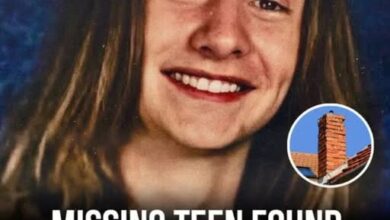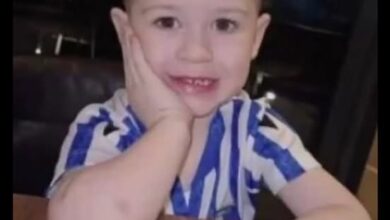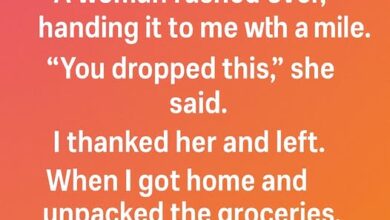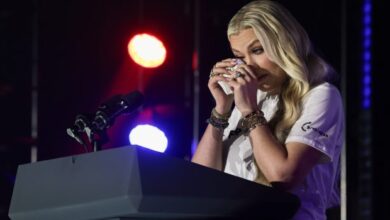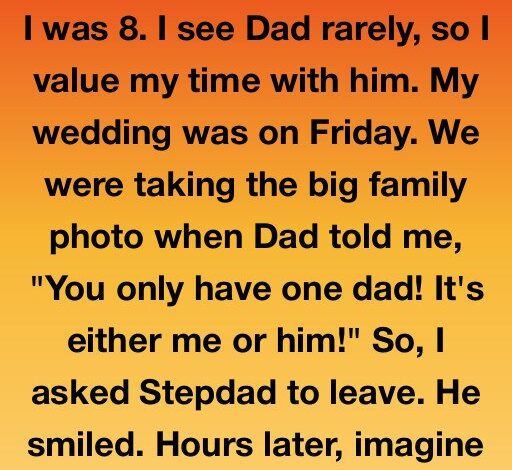
You Only Have One Dad, A Wedding Day Story!
My wedding day was supposed to be perfect — the kind of day little girls imagine in vivid detail. The dress fit flawlessly, the music swelled at just the right moments, and the people I loved most surrounded me. But in one instant, a few quiet words shattered the illusion of perfection and revealed a truth I’d spent years avoiding.
When the photographer called everyone over for the big family photo, my dad leaned close and whispered, “You only have one dad. It’s either me or him.” His tone wasn’t angry, just firm, absolute — the kind of voice I’d learned as a child not to challenge. For a moment, my stomach twisted. My stepdad, Marc, was standing nearby, beaming, holding my bouquet while I posed. I turned to him, confused and torn, and before I could think, I said the words that would haunt me: “Marc, can you step aside?”
He smiled — a small, controlled smile that didn’t reach his eyes — and quietly walked away. I told myself it was nothing, that he’d come back. But hours later, after the photos and champagne, I noticed his absence. My mom found me in a corner of the reception hall and said softly, “He left.” No goodbye, no explanation, just gone.
I tried to hold it together, to keep the joy alive for the guests, but inside, I was crumbling. I’d chosen the man who showed up once a year over the one who’d been there every day. My biological father — charming, inconsistent, always promising to do better — had forced a choice I never should have had to make. And I let him.
Marc had been my constant. He was the man who drove me to soccer practice, who sat through endless school plays, who helped me move apartments when my life fell apart at twenty-three. He never called himself “Dad.” He didn’t have to. His love was steady, quiet, without conditions. And I’d thrown it back in his face to appease the man who’d missed half my life.
The guilt set in quickly and hard. I called, I texted, I left messages — nothing. The honeymoon came and went, but I couldn’t shake the hollow feeling in my chest. Every time I thought of that polite, painful smile, I felt sick.
Three weeks later, I drove out to Marc’s cabin, deep in the woods. His old truck was parked outside. I knocked on the door again and again until finally it creaked open. He looked tired, not angry, just worn down.
“I messed up,” I said immediately. My voice cracked.
He didn’t yell. He didn’t make me beg. He just nodded, expression unreadable. “I didn’t expect you to choose me,” he said, “but I didn’t expect you to choose him either.”
That simple truth broke something in me. Tears came fast and heavy. He handed me a box of tissues like it was the most ordinary thing in the world.
“You’re not a bad person,” he said quietly. “You were caught in a moment. That doesn’t erase all the good ones.”
We didn’t fix everything that night. But before I left, he hugged me — a long, steady hug that told me forgiveness was possible, even if it wasn’t immediate.
Over the next few months, I kept showing up. Dinners at his place turned into shared laughter again. My husband, Theo, came along sometimes, helping Marc fix the porch or grill steaks in the backyard. Slowly, the air between us cleared. We never spoke about the wedding again — we didn’t have to. The silence said enough.
Then, one evening, the past came calling. My biological father rang, furious. He said I’d betrayed him, that I’d humiliated him by “running back” to Marc. I listened quietly, then told him the truth: “I’m done choosing between pride and love.” He hung up, and that was the last time we spoke.
And for once, I didn’t chase him.
A few months later, Marc got sick — Stage 3 cancer. The kind of diagnosis that drops your stomach and blurs the world. We rallied around him. Hospital visits, sleepless nights, endless rounds of chemo. Through it all, he stayed the same — cracking jokes, smiling through the pain, comforting us when we should’ve been comforting him.
One night, during a late hospital visit, he said quietly, “You know, I never needed you to call me ‘Dad.’ I just needed you to be okay.”
That line hit me harder than any lecture or guilt ever could. I’d spent years trying to earn love — chasing after the one who left — when the man who stayed never asked for anything in return. His love wasn’t something I had to prove. It was something he gave freely, and I’d finally learned how to accept it.
Marc’s recovery was slow, uncertain, but he made it through. When he finally came home, we celebrated with a small dinner on the porch, laughter mixing with relief. After that, I started insisting on family photos every month — messy, chaotic, perfectly imperfect. Because I’d learned the hard way that people don’t stay forever, and you have to capture the moments while you can.
When our first child was born, Theo and I named him Marcus. When we told Marc, he didn’t speak for a full minute. Then his eyes filled with tears. “You didn’t have to do that,” he whispered.
“I know,” I said. “That’s why we did.”
Now, when people ask who my dad is, I don’t hesitate. It’s Marc — the man who chose me when he didn’t have to, who stayed when I didn’t deserve it, who taught me what love really means.
That day at the wedding, I thought love was something fragile — something to defend, to prove, to protect. I was wrong. Love isn’t about choosing sides. It’s about showing up. It’s about forgiveness, patience, and second chances.
If someone ever forces you to choose between love and pride, choose love. Every single time. Because the people who truly matter won’t make you choose — they’ll stand beside you even after you fail them.
And if you’re lucky, like I was, they’ll still be there when you finally learn the difference between being loved and being chosen.
